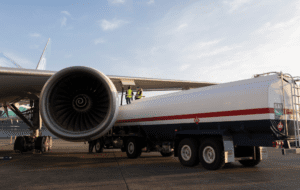Southeast Asia primed to play key role in SAF growth, says Boeing

The sustainable feedstock assessment, encompassing 11 countries across Southeast Asia, found that the region’s bio-based feedstock capacity can produce approximately 45.7 million metric tons of SAF per year by 2050.
Furthermore, approximately 75% of potential SAF feedstock can be sourced from postconsumer and agricultural waste including cassava, sugarcane and municipal solid waste.
“This research affirms Southeast Asia’s diverse SAF feedstock availability and immense potential for helping meet global demand for SAF,” said Sharmine Tan, Boeing’s regional sustainability lead for Southeast Asia.
“With regional governments and industry working together on sustainability polices and infrastructure investment, scaling local production and building a regional SAF capability provides Southeast Asia an exciting opportunity to help shape a more sustainable future of flight while protecting its environment and growing its economy.”
Unblended, or “neat” SAF, which is totally free of fossil fuels, offers the largest potential to reduce aviation’s carbon emissions over the next 30 years, as it can reduce emissions over the fuel’s lifecycle by up to 84%.
In 2023, SAF only accounted for 0.2% of global commercial fuel use.
“Our research considers not only the potential volumes of feedstock available in Southeast Asia, but also their environmental and social sustainability in terms of impacts on deforestation, water, and food security,” said Arianna Baldo, RSB’s programme director. “These results can help guide future SAF feedstock supply including the exploration of other agricultural and industrial waste materials.”














